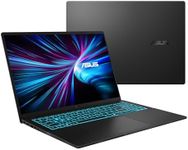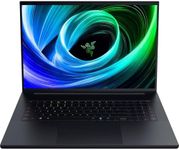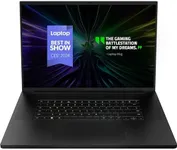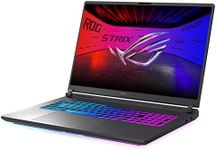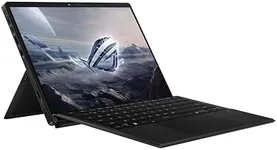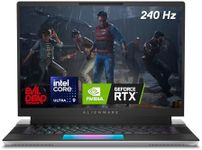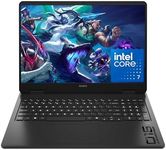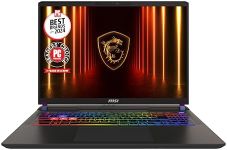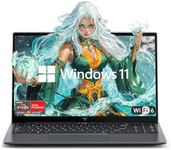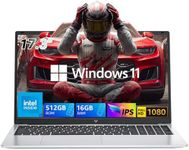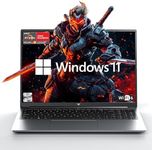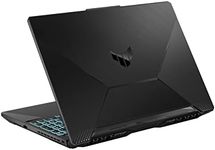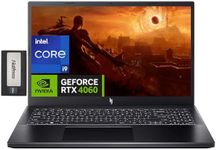Buying Guide for the Best Gaming Laptops
Choosing a gaming laptop can feel overwhelming because there are so many options and features to consider. The key is to focus on what matters most for your gaming experience, such as performance, display quality, portability, and how long the laptop can last on a single charge. Think about the types of games you want to play, whether you’ll use the laptop for other tasks like school or work, and how often you’ll need to carry it around. By understanding the main specifications and how they affect your experience, you can find a gaming laptop that fits your needs and helps you enjoy your favorite games smoothly.Graphics Card (GPU)The graphics card, or GPU, is the heart of a gaming laptop because it handles all the visuals and graphics processing. A stronger GPU means smoother gameplay, higher frame rates, and the ability to play newer games at higher settings. Entry-level GPUs are good for older or less demanding games, while mid-range GPUs can handle most modern games at medium to high settings. High-end GPUs are best for playing the latest games at ultra settings or for using high refresh rate displays. If you play fast-paced or visually demanding games, or want your laptop to stay relevant for longer, prioritize a better GPU.
Processor (CPU)The processor, or CPU, is responsible for running the game’s logic, physics, and background tasks. A faster CPU helps with overall system performance and is especially important for games that rely on lots of calculations, like strategy or simulation games. CPUs are usually divided into entry-level (good for basic gaming and multitasking), mid-range (suitable for most games and everyday use), and high-end (best for demanding games, streaming, or content creation). If you plan to multitask, stream, or play CPU-heavy games, look for a laptop with a stronger processor.
RAM (Memory)RAM is your laptop’s short-term memory, allowing it to quickly access data needed for games and other applications. More RAM means smoother multitasking and better performance in modern games. 8GB is the minimum for gaming, but 16GB is recommended for most users to ensure smooth gameplay and future-proofing. If you run many programs at once or play very demanding games, 32GB may be helpful, but for most gamers, 16GB is the sweet spot.
Storage (SSD/HDD)Storage determines how much space you have for games, files, and programs, and also affects how quickly your laptop loads games and boots up. SSDs (Solid State Drives) are much faster than traditional HDDs (Hard Disk Drives), so games load quicker and the system feels more responsive. A 512GB SSD is a good starting point for most gamers, but if you have a large game library, consider 1TB or more. Some laptops offer a combination of SSD for speed and HDD for extra space. Choose based on how many games and files you plan to store.
Display (Refresh Rate, Resolution, Size)The display affects how your games look and feel. Refresh rate (measured in Hz) determines how many times the screen updates per second; higher rates like 120Hz or 144Hz make fast-paced games look smoother. Resolution (like Full HD or 4K) affects how sharp the image is; higher resolutions look better but require more power from the GPU. Screen size (usually 15 to 17 inches) impacts portability and immersion. If you play competitive games, a higher refresh rate is important. For better visuals, look for higher resolution, but balance it with your GPU’s capabilities.
Battery LifeGaming laptops are powerful, but that means they often use more battery. Battery life tells you how long you can use the laptop away from a charger. If you plan to game mostly while plugged in, battery life may not matter much. But if you need to use your laptop for school, work, or travel, look for models with longer battery life. Keep in mind that gaming drains the battery faster than regular use.
Portability (Weight and Thickness)Portability is about how easy it is to carry your laptop around. Lighter and thinner laptops are easier to take to school, work, or a friend’s house, but may have less powerful hardware or smaller batteries. Heavier laptops often have better cooling and more powerful components, but are bulkier. Think about how often you’ll move your laptop and choose a balance between power and portability that fits your lifestyle.
Keyboard and Build QualityA comfortable keyboard and sturdy build make a big difference in your gaming and everyday use. Some gaming laptops have special features like RGB lighting or mechanical keys, which can enhance your experience. Build quality affects how long the laptop will last and how well it handles travel. If you type a lot or play games that use many keys, pay attention to keyboard feel and layout. If you’re rough on your gear or travel often, look for a more durable build.
